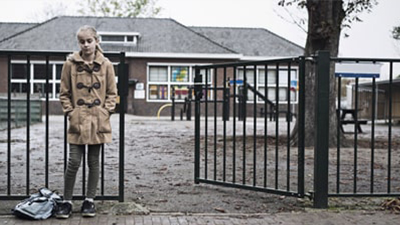Rhianan Rudd: Radicalised, groomed and exploited

The tragic death by suicide of Rhianan Rudd has been highlighted by the British press this week. Aged 15, she was the youngest ever girl charged with terrorist offences. Her death raises questions on how the UK deals with children and young people involved in extremism.
Rhianan, who was born in Essex and then moved with her mother to Bolsover, Derbyshire, became involved in right-wing extremism aged 14, when she became secretive and withdrawn and began expressing concerning neo-Nazi views.
According to her mother, Emily Carter, Rhianan had difficulty building relationships and she was diagnosed as autistic. She had run away from home in the past and there was social service involvement with the family.
Ms Carter referred Rhianan to the Prevent programme in September 2020 following her growing concerns and after Rhianan admitted to downloading a bomb-making manual.
It transpired that Rhianan had been in regular online contact with an American extremist, Christopher Cook, who was also in contact with Rhianan's mother's former US partner, Dax Mallaburn. Mallaburn had been part of a white supremacist prison gang in the US. He had met Rhianan's mother via a pen pal system for prisoners. Christopher Cook had both radicalised and sexually exploited Rhianan.
The FBI had been monitoring the activity of Christopher Cook and within a month of Rhianan being referred to Prevent, she was arrested on suspicion of terrorist offences for allegedly possessing weapon-making guides, questioned and bailed, and no longer able to attend school.
Rhianan was 6 months on bail, having been charged with six terrorism offences, during which time she self-harmed and tried to run away. This resulted in her being placed in the care of Derbyshire County Council. It was during this bail period that defence lawyers became involved and wanted Rhianan referred to the specialist government unit at the Home Office which considers whether people are trafficked and exploited under the Modern Slavery laws. This referral was made by Derbyshire Council, not the Police.
It took another 7 months for any decision to be made and when the decision came in late 2021, concluding that Rhianan had been exploited, the prosecution was abandoned.
It has since transpired that an FBI investigation into Christopher Cook had received images and messages showing the grooming and sexual exploitation of Rhianan. These had been passed onto MI5 six months before Rhianan was charged.
Following the dropping of all charges, Rhianan decided to stay under the care of Derbyshire Council at the private care home run by Blue Mountain homes. However, Rhianan's mother claims that there were indications that not all was well. Just weeks before her death, Rhianan asked her mother to help her contact a neo-Nazi organisation in the US. Ms Carter reported this to the home. Her mother also warned that there was a risk of Rhianan taking her own life and that she had access to ligatures, even though they were ‘banned' in the home.
Rhianan committed suicide by hanging in May 2022. She was found in her room after more than 12 hours since she had gone to her bedroom. There will be an inquest into her death forthwith.
Counter-terrorism investigations into children and young people can be both complex and challenging. Such children may be both a victim of exploitation and also a threat to others. Rhianan's death has increased the public focus on how authorities deal with and tackle this issue, bringing practice under increased scrutiny and debate.
Jonathan Hall KC, the independent reviewer of terrorism legislation, asks the question of whether dealing with this through the normal criminal justice route is the most effective way of managing the risk?
He illustrates this by stating that in 2020/21 only one child who committed a terrorism offence went to prison, all others were eventually given non-custodial sentences. Therefore, he argues that the traditional route of investigating, sentencing and sending to prison for a long time is not an effective way of dealing with these sorts of offences which involve children. He added,
“I think there is room for developing a new legal instrument which allows the Police to say, ‘We are either going to prosecute you or you can accept this injunction'- which would, e.g. limit your mobile phone use, have monitoring software, not be able to delete your internet history and, certainly, engagement with some sort of mentor, This could be done really quickly and keep them out of the criminal justice system all altogether.”
For a child to become radicalised there must be an instigator; someone who feeds and grooms through coercive control and exploitation. The details of this sad case will be far more complex than the mere facts here but, again it does pose the question that if she had been recognised and supported as an exploited child rather than being identified as a terrorist, would she still be alive today?
Sara Spinks
SSS Author & Former Headteacher











